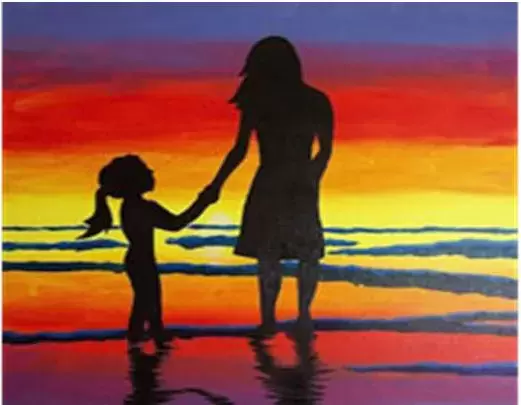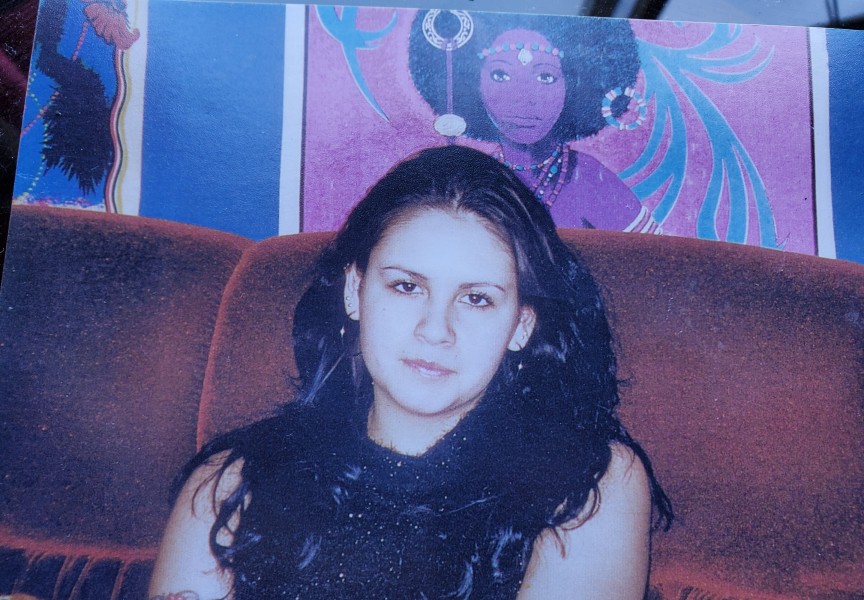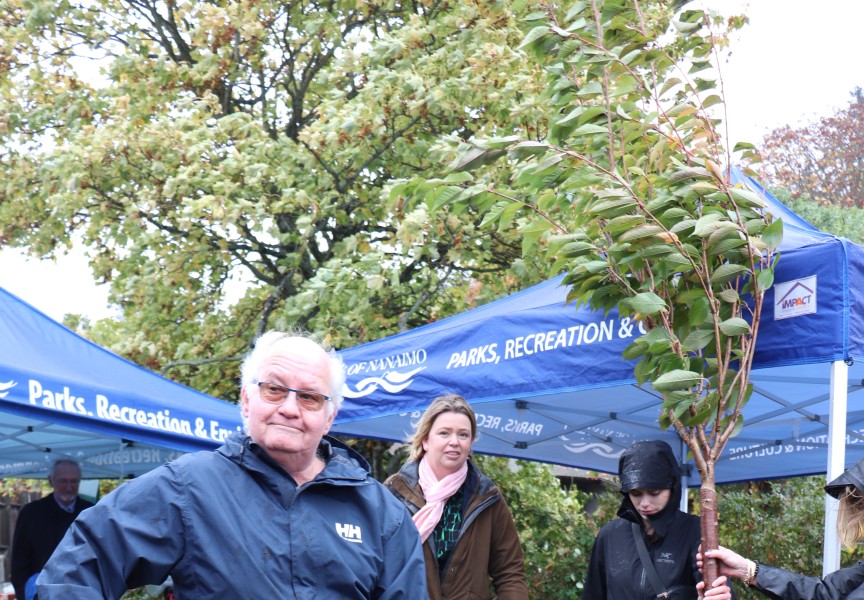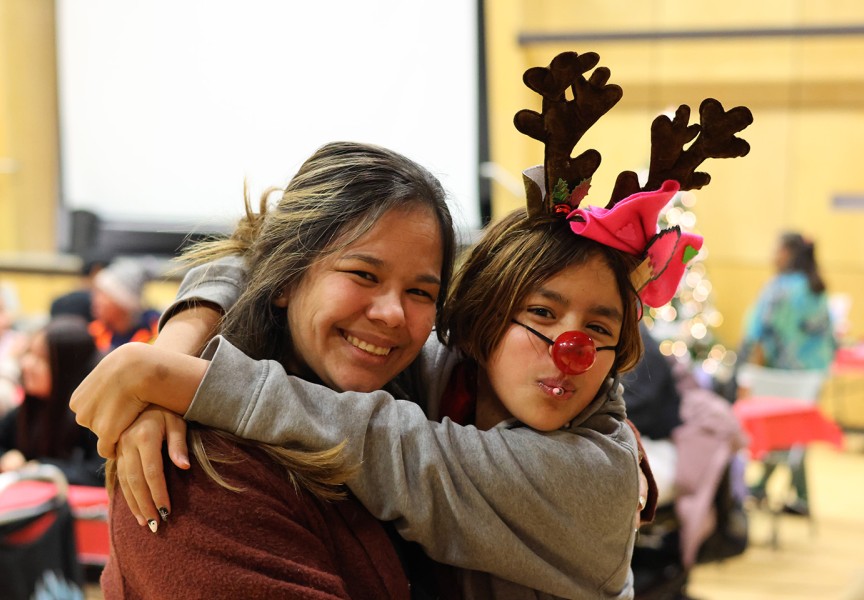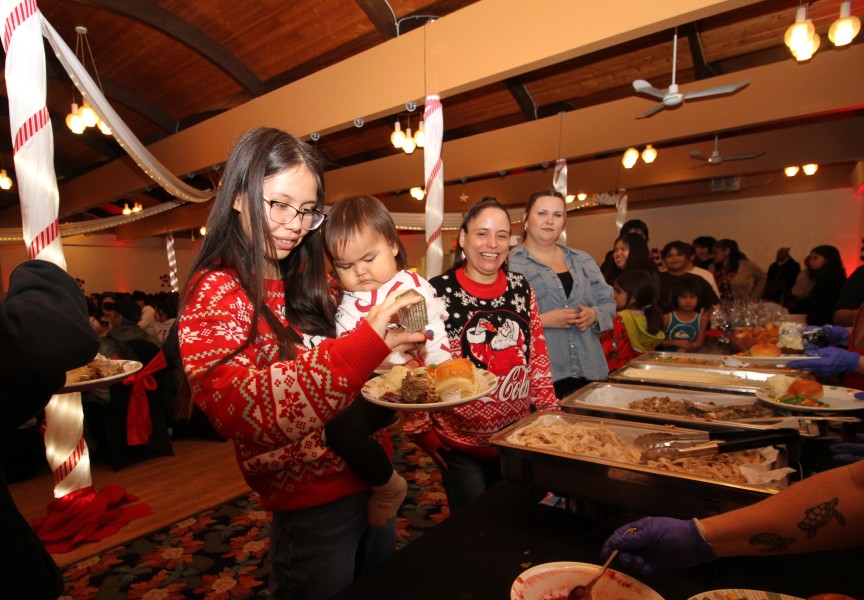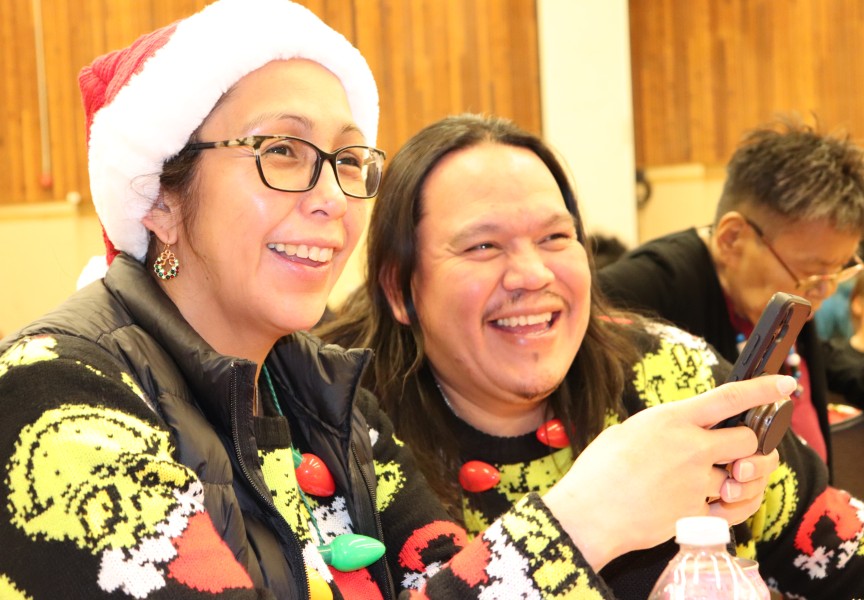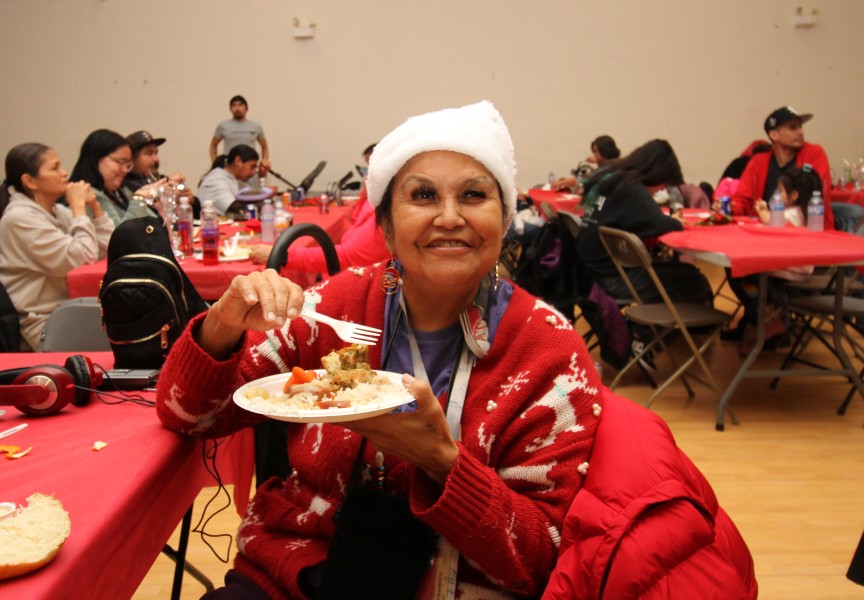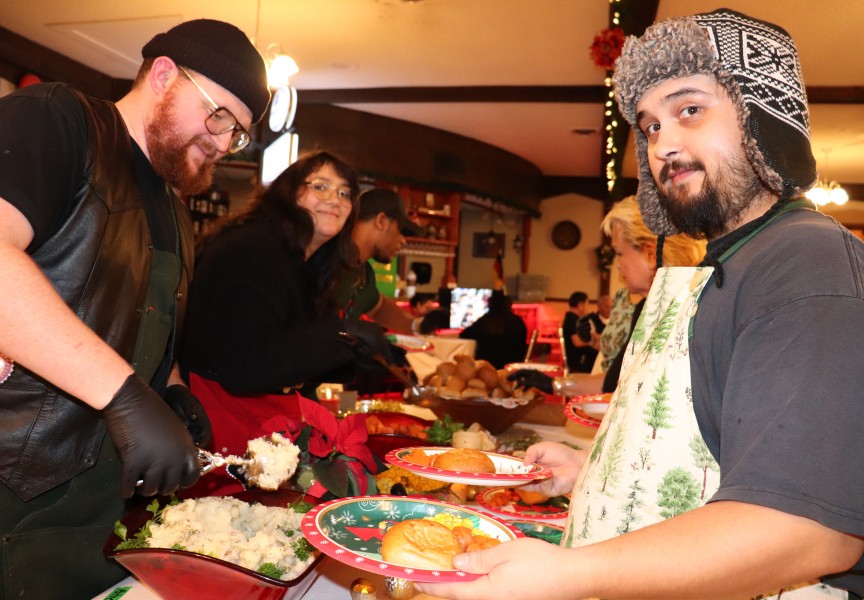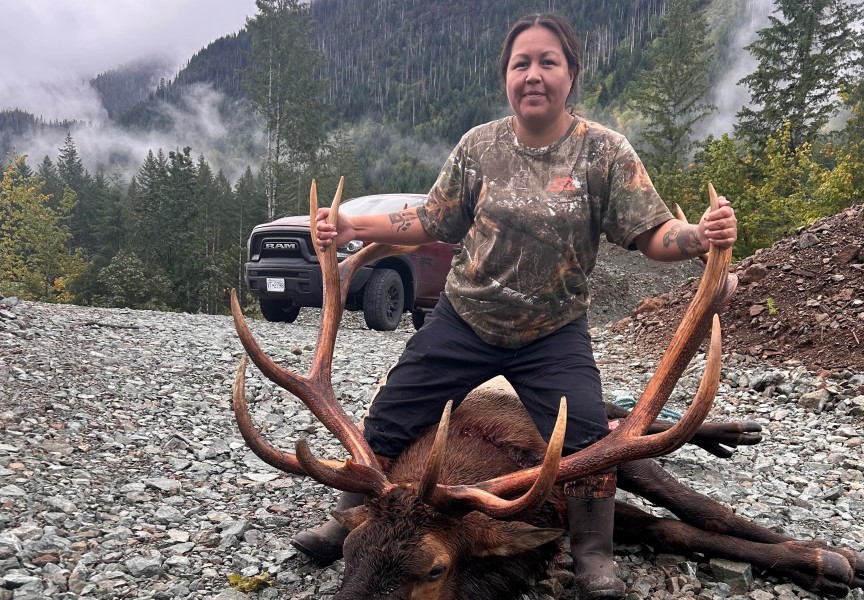Several years after her aunt was found murdered on a logging road near Gold River, Lillian Howard encountered the late family member in a dream. Christina Beatrice (Howard) Thomas reassuringly held out her hand to Lillian.
“She said, ‘Hi Lil, I just came by to tell you how much I love you and how proud I am of you. I just wanted you to know that I’m okay, I’m happy and I want you to be happy’,” recalled Lillian.
The vision came to Lillian with a sense of release after decades of painful mourning. At the age of 26, Christina Thomas and her 16-year-old sister Helena Howard were stabbed to death on the Elk River logging road in 1979 after they had been hitchhiking from Campbell River. Dean Thomas Langford was soon convicted for double homicide, and was himself murdered while in prison the following year.
The last 38 years have been a long healing journey, but during much of that time Lillian was reluctant to openly acknowledge the tragedy.
“It was such a stark, brutal murder that happened, it was always hard to go back and remember them,” she said. “For most of us residential school survivors, a lot of us suppressed our feelings. We just put everything on hold.”
In recent years ceremony has helped Lillian live with the tragedy, particularly an exercise in a Vancouver park involving a release of butterflies.
“We put some monarch butterflies in the coffin and then closed it. When we opened it the butterflies flew out. I looked up and thought, wow, I now have the opportunity to say goodbye to my two aunts,” recalled Lillian. “It was only a couple of years ago, three years ago, that I finally let go. Ever since then it’s given me the energy to begin addressing the issue without falling apart.”
Organizers behind an upcoming gathering for the families of missing or murdered Indigenous women and girls are hoping others affected by tragedy can also find a sense of release and strength. The MMIWG Gathering is being hosted by the Nuu-chah-nulth Tribal Council at Maht Mahs in Port Alberni, Sept. 12-14. At the time of writing, NTC has been able to identify 39 Nuu-chah-nulth victims since the 1960’s. Of these, Twenty-one Nuu-chah-nulth families of murdered or missing women and girls are scheduled to attend the event.
NTC President Debra Foxcroft travelled to Prince George for a MMIWG event in early 2016. A dozen Nuu-chah-nulth families affected by the issue attended, but not all got the chance to speak, said Foxcroft. It was at this gathering that these Nuu-chah-nulth families asked Foxcroft to have the Tribal Council host a gathering for their families, in Nuu-chah-nulth territory.
“Some of them were able to get up and tell their stories at this gathering, but it was huge, there were 300 people there,” she recalled. “Here we’re going to have more opportunity for the family members to attend.”
At the Prince George event Foxcroft began discussions with the provincial Ministry of Aboriginal Affairs and Reconciliation to support a Nuu-chah-nulth gathering. Shortly before the spring election, the provincial government announced funding for the NTC to host the event.
“[It’s an] opportunity to have a voice, tell their stories in our own traditional territory, in their own way, in a safe place,” said Foxcroft. “For some it’s going to be the start of their healing process for the loss of their loved ones.”
Other guest speakers are scheduled, including women leaders from the Union of BC Indian Chiefs, the First Nations Summit and the B.C. Assembly of First Nations. Traditional songs, prayers and a cedar ceremony are planned to provide families with a comfortable space to share their experiences and heal together.
The homicide rate for aboriginal women is four times Canada’s average, according to the National Inquiry into Missing and Murdered Indigenous Women that began last spring. With a budget of $53.8 million over two years, the National Inquiry has suffered a series of high-level resignations this year and is requesting a two-year extension. But the upcoming family gathering in Port Alberni brings opportunity for Nuu-chah-nulth families to inform the National Inquiry, as the body is sending legal representatives to collect statements from those participating in the event.
The National Inquiry agreed to send a legal team after the NTC requested their presence, said Foxcroft.
“We thought that if they could come, then [families] wouldn’t have to go to another forum to tell their story,” she said, noting that the National Inquiry has been challenged to adequately support those providing statements. “I think they struggle in terms of how they can provide that healing and support for families…You go to these events and you open people up, but what do you do after that?”
For the family of Lisa Marie Young, the need will continue to be keeping her memory alive. Since Lisa Marie went missing in Nanaimo on June 30, 2002 her mother Joanne Martin has held vigils and walks each year to promote the search for her missing daughter. Sadly, Joanne was not able to have closure at the time of her passing June 21, 2017.
Lisa Marie’s grandmother Cecelia Arnet said the family will continue to hold events promoting the search.
“We’re just going to keep having the vigils until we have a closure,” she said. “We won’t give up until we have more answers.”
Lisa Marie was last seen at a house party, when she left with a fellow she recently met to get a bite to eat, said her aunt Carol Frank.
“When Lisa went missing it took the police over a month to do a search for my niece,” said Carol. “My sister was upset because there was tips coming in and they weren’t following up with the tips. It was our nation that pulled together, Tla-o-qui-aht, and put a search team together.”
Carol recalls Joanne being concerned how the public would perceive Lisa Marie’s disappearance after the 21-year-old went missing.
“My sister didn’t want people to know that my niece was half-native because they would put a label on her right away,” she said. “They would say that she was either working on the street or she was drinking or doing drugs, things like that.”
With an estimated 1,200 missing or murdered aboriginal women in Canada, according the National Inquiry, Lisa Marie’s family has stressed the importance of recognizing her as a unique person.
“I remember when she was four, I was always at their place. She was very lovely and sweet,” recalls Cecelia, who saw Lisa Marie at her mother’s home the night before her disappearance. “I gave her a hug and a kiss and I said, ‘You know, I love you very much, the whole family loves you.’ She said, ‘I know, Grandma’.”
“Lisa is important to us,” added Carol. “She’s just not a number out there.”
The upcoming Nuu-chah-nulth MMIWG Gathering marks the first time a nation has held an event for families, noted Foxcroft, a development that she hopes can trigger other First Nations to hold other gatherings on the issue.
“I’m hoping that this will also be an education and awareness for all of our families about the violence against women,” she said. When she attends the gathering in Port Alberni, Lillian Howard hopes that others affected by tragedy can benefit from sharing their experiences.
“Once people share their story or their testimony, they feel that they’re not alone. There’s other people that have gone through this,” she said, adding that she finds strength by remembering her aunts. “I have many good memories of them, and I’m really grateful that I have those memories. That’s what I need to remind myself when I’m working on this issue.”
-With files from Denise Titian

